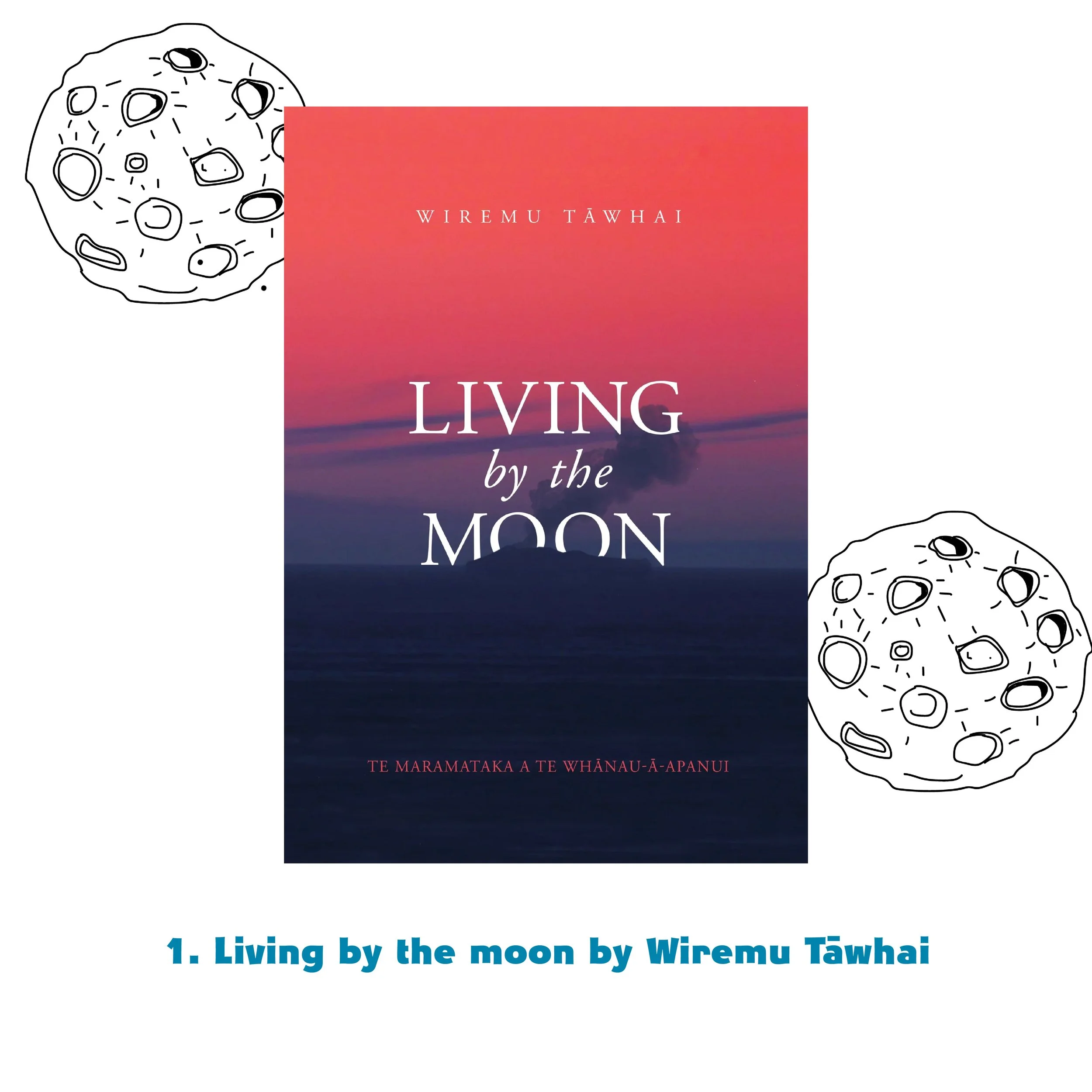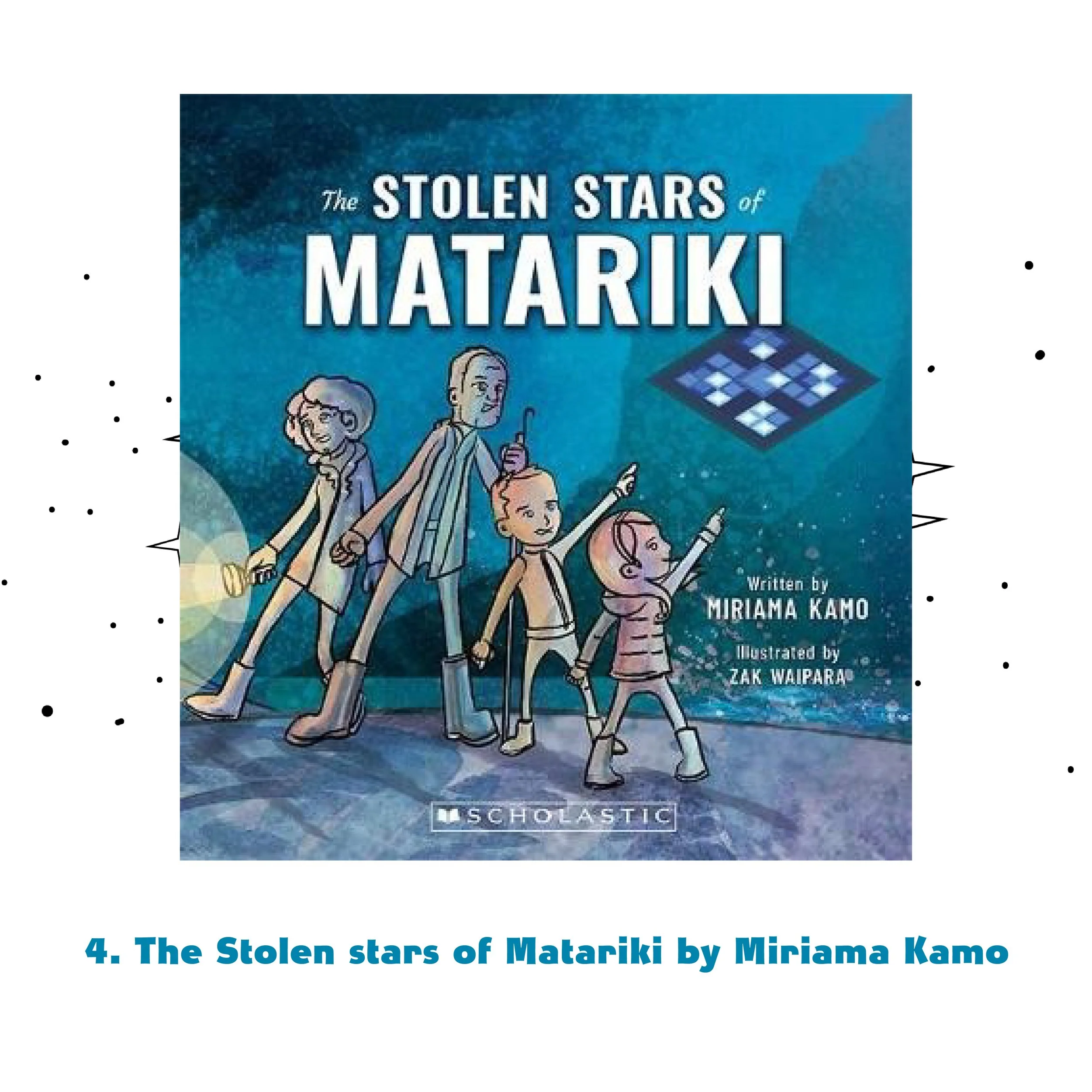Hana’s Pukapuka Recommendations
We asked Titiro ki muri, kia whakatika ā mua | Look to the past to proceed to the future organiser Hana Pera Aoake about some of their reading room pukapuka faves. Visit our reading room to check them out!
1. Living by the moon by Wiremu Tāwhai
"Kua tauwhirowhiro te marama kai runga i te pae - pō pai."
Why: I love this pukapuka for the matauranga it contains and for the way it is structured. It carefully analyses the cycles of the moons and pages are split in te reo Māori and te reo Pākehā. Its constantly emphasised that this is matauranga that is Te Whānau-ā-Apanui specific, but I have used this pukapuka often especially before planting. Given that it was a Tirea marama last night I checked to see what it was before planting my garlic and potatoes in my mara kai today.
2. Puna wai kōrero: An anthology of Māori poetry in English edited by Reina Whaitiri and Robert Sullivan.
You came to me from friends
wet with the Hokianga and
smiling.
-Kina by Aroha Harris (2003), pg. 103
And all the while the warm scents of evening lay heavy on the air
and peace that comes with the falling darkness is deep-rooted within
you
-Composed on a Summer's evening by Rore Hapipi (Rowley Habib) (1961), pg. 101
Why: I love this book beyond words. It has introduced me to so many really important Māori writers. Its a taonga.
3. Sweat and salt tears: selected works by Teresia Kieuea Teaiwa
"My point is that the so-called cultural traditions that bind women are no longer viable in a world that has permitted male egoism to run amok in the form of neocolonialism and nuclear militarism". - Teresia Kieuea Teaiwa - "Microwomen: US Colonialism and Micronesian Women Activists", pg. 91
Why: I first became aware of Teresia Teaiwa's work when I was reading the late Tongan author, Epeli Hau'ofa's work especially his essay, Our Sea of Islands where he drew on her work especially the quote 'We sweat and cry salt water, so we know that the ocean is really in our blood'. This collection really speaks to her expansive way of thinking and she goes pretty hard, but its always hopeful and ultimately a really useful series of essays with inflections of poetry that helps us understand the interconnectedness of different struggles for tino rangatiratanga across Te Moana-nui-a-kiwa. I especially like her writing around masculinity, the Military-Industrial complex and her essay 'How does change happen?'
4. The Stolen stars of Matariki by Miriama Kamo
"The star made a shining arc across the dawn sky as she bumped into the other stars, then took her place."
Why: This is such a beautiful story for young children. I really love the Kāi tahu mita that is incorporated and I love how fundamentally its a story about the intergenerational transmission of knowledge.
The Reading Room will be accessible between 1-29 July, during Tautai’s opening hours:
Tuesday - Friday, 10am - 4pm
Saturdays, 11am - 4pm
Sundays & Mondays, Closed
Friday 14 July, Closed for Matariki





